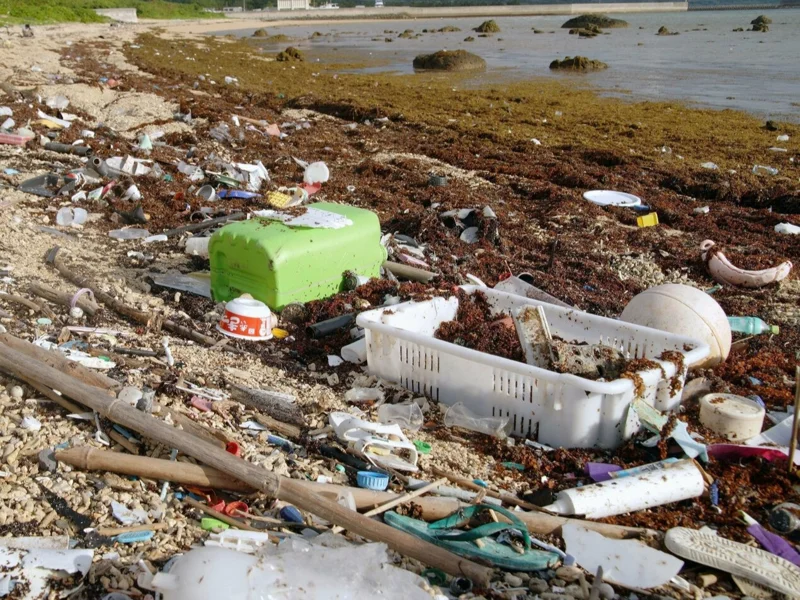Asia's plastic leakage to environment to rise 70% by 2050: OECD
Plastic waste leakage to the environment in Southeast Asian countries plus China, Japan and South Korea could increase by nearly 70 percent by 2050 from 2022 levels without effective measures to reduce the pollution, according to an OECD report released recently, Kyodo reports.

Describing the region as a "hotspot for plastic pollution," the Organization for Economic Cooperation and Development said in its report that mismanaged plastic waste remains a major concern, with 8.4 million tons leaking to the environment there in 2022.
"Informal and unsafe practices, such as open burning and dumping, persist in most ASEAN countries and China, especially in rural areas," the Regional Plastics Outlook said, referring to the 10-member Association of Southeast Asian Nations.
Plastic waste is a major environmental issue, polluting rivers and oceans and posing health risks to wildlife and humans as microplastics enter the body.
The OECD projects that annual leakage into environment in the region could reach 14.1 million tons in 2050, of which 5.1 million tons could reach rivers, coastal areas and oceans.
The countries in the region differ widely in waste management capabilities and measures to curb plastics demand remain underutilized in most of them, it said.
Due partly to rapid population growth and urbanization, plastic use in the 13 countries surged almost ninefold from 17 million tons in 1990 to 152 million tons in 2022, with more than half used for short-lived applications such as packaging, the OECD said.
As over half of the plastic used in the region has a lifespan of less than five years, much of it quickly becomes waste. Regional plastic waste rose from 10 million tons in 1990 to 113 million tons in 2022.
Ambitious actions, including bans on single-use plastics and taxes, could cut plastic use in the region by 28 percent, raise the recycling rate to 54 percent, and reduce mismanaged waste by 97 percent, it added.
Talks for an international legally binding treaty on plastics pollution resumed on Tuesday in Geneva after the previous talks last year in Busan, South Korea, collapsed with countries split over measures on plastic output curbs and plastic waste management.
Earlier, Kazinform News Agency reported humans breathe in tens of thousands of microplastics indoors each day, according to the study.
